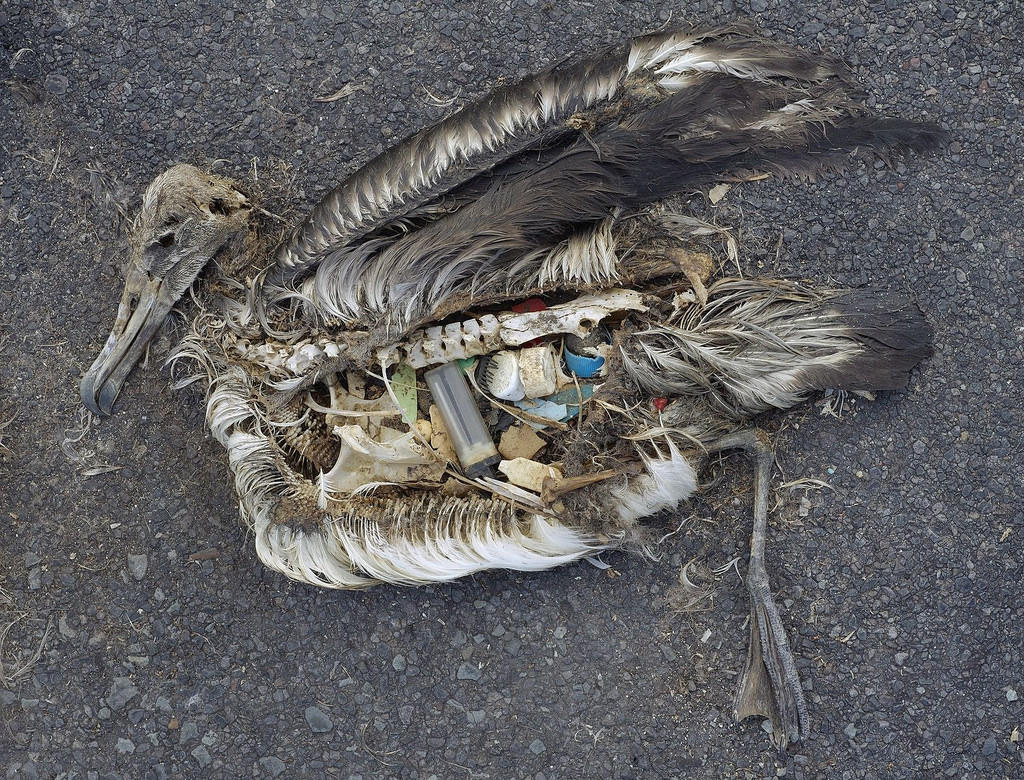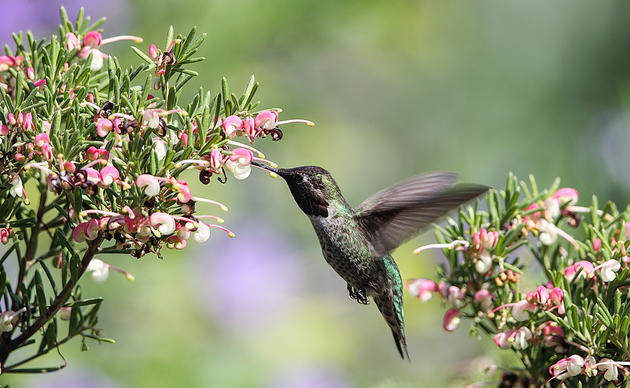
Plastic debris is a problem for both birds and people. Birds die when they ingest plastic they come across in the ocean and on the landscape, and plastic litter degrades the beauty of California’s treasured landscapes. For this reason, Audubon California supports Senate Bill 54 and Assembly Bill 1080, which will ensure California is on the forefront of reducing pollution from plastic packaging and products. The bills would set goals to reduce waste from single-use packaging and products and ensure the remaining items are effectively recycled.
These bills are authored by Sen. Ben Allen and Assemblywoman Lorena Gonzalez, with Sen. Nancy Skinner, Sen. Scott Weiner, Sen. Henry Stern, Assemblymember Laura Friedman, and Assemblymember Phil Ting.
A report by scientists studying the stomach content of Laysan Albatross chicks on Midway Atoll in the Pacific Ocean revealed disturbing results: Forty percent of Laysan Albatross chicks die before fledging. Necropsies of the chick's stomachs found them filled with plastic trash. The U.S. Fish & Wildlife Service has also detailed the danger of plastic to birds on Midway.
According to the authors of the two bills, the pitfalls of plastic waste go far beyond the impact on marine birds. They cite the millions California spends each year cleaning up plastic litter, the public health toll from exposure to toxins in plastic, and the low recycling rate of single-use plastics. They also note that, because plastics are derived from fossil fuels, their production contributes to climate change and other long-term environmental problems.
Audubon California recently signed on to a letter of support for SB 54 that included nearly every environmental organization in the state. The letter states, in part:
Experts agree that upstream reduction of packaging and packaging waste is the most effective, and least expensive way to protect human, wildlife, and environmental health. Many reliable and reusable alternatives already exist and the positive results of their use have been proven. SB 54 would be an important step in protecting human and wildlife health, reducing clean-up costs and our reliance on fossil fuels, restoring ecosystems, and revitalizing resource dependent communities. Let’s continue to be a leader for our citizens, wildlife, and environment, as well as for the rest of the nation.
Read the entire letter here.
By Garrison Frost
Monthly Giving
Our monthly giving program offers the peace of mind that you’re doing your part every day.




